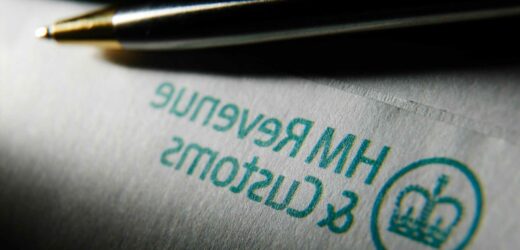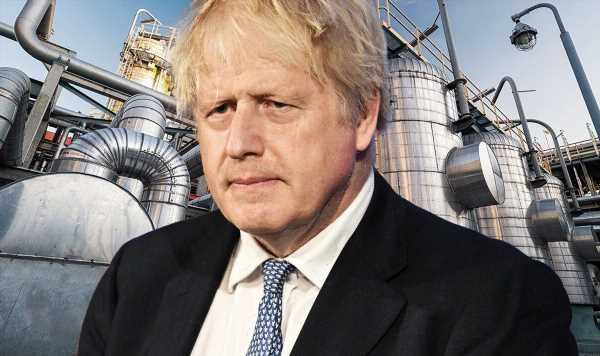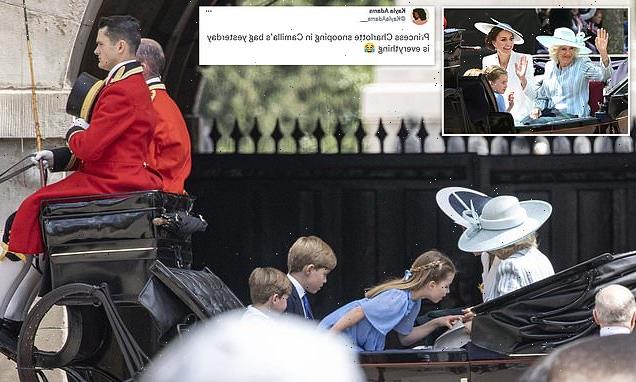YOU could earn up to £43,590 extra this year without even giving a penny to HMRC.
It almost seems unfair having to hand over your hard-earned dosh to the taxman, especially with everyone's wallets stretched amid the cost of living crisis – but paying your dues is important.
You can make money from hobbies or renting out a driveway, and more, while keeping a tight hold on your rightful cash though.
And it's all thanks to tax free allowances.
They can be taken advantage of with the start of every new tax year, and it means you can earn up to a certain amount before you have to starting forking out for the taxman again.
Benefits of the Personal Allowance, for example, mean millions of low earners don't pay any tax at all.
READ MORE SUN STORIES
Six ways to pay less tax – and it could save you THOUSANDS
I’m a finance expert and here’s how to earn £20,000 a year without paying tax
But the National Living Wage went up to £9.50 in April this year, from £8.91 previously.
The move will have instantly given many people a £1,000 a year pay rise.
But that only means more workers are forced above the current threshold as they're earning more – and it could mean they are obliged to start paying tax this year.
Here are all the ways you can earn tax free though.
Most read in Money
IN CREDIT Universal Credit explained: How to get one-off payment worth up to £812
I'm a benefits expert – key dates that could change or stop your payments
Pubs charge £8 a PINT for first time sparking fears punters will stay home
Thousands of households miss out on council tax bill discounts of up to 100%
Personal allowance – £12,570
The personal allowance is the amount you can earn tax-free each year.
In the current tax year running from April 6, 2022, to April 5, 2023, the standard amount is £12,570.
A rate it's staying at until April 2026.
That means for basic rate taxpayers, the threshold will be held at £12,570 for the next few years, meanwhile higher rate taxpayers will be capped at £50,270.
Basic rate tax payers pay 20% on earnings over the lower threshold, while higher rate payers are charged 40% above the top threshold.
But what it means for your finances is that if you earn £12,570 or less, you currently pay no income tax.
Meanwhile, Brits who earn over £125,140 a year don't get any personal allowance and will pay income tax on everything they earn.
You can calculate what your take home pay is depending on your salary by using MoneySavingExpert's free online calculator.
Marriage allowance – £1,220
If you're married or part of a civil partnership, you may be eligible for a tax break known as the marriage allowance.
This applies to couples where one of you is a non-taxpayer (earning less than £12,570) and the other is a basic-rate tax payer (earning less than £50,270).
It allows you to transfer £1,260 of your personal allowance (the amount you can earn tax-free each tax year) between you to cut your yearly tax bill.
This means the higher earner can keep more of their salary before paying income tax, boosting their yearly earnings of £252 in real terms.
However, you can also backdate the claim by up to four years, meaning you could get a £1,220 payout.
You can only apply if you are the non-taxpayer – or lower earner – in the relationship.
And you can't claim marriage allowance if you’re living together but you’re not married or in a civil partnership.
To work out how much you will get you can use the government's marriage allowance calculator.
Any backdated money owed to you will be calculated automatically and sent to you as a cheque.
Rent out a room – £7,500
If you rent out a furnished room of your home to a lodger through the government's Rent a Room Scheme, the first £7,500 of rent each year is tax-free.
However, this is halved if you share the income with your partner or someone else.
The tax exemption is automatic if you earn less than the threshold, meaning you don't need to do anything.
If you earn more than this you must complete a self-assessment tax return to let the taxman know.
You can then opt into the scheme and claim your tax-free allowance.
Rent out a driveway – £1,000
Another way to make tax-free income from your home is by renting out storage space or a driveway.
This will let you earn up to £1,000 a year without paying any tax.
Depending on where you live, you could net up to £200 a month by renting out your driveway to motorists.
You can use the price guide tool by Park Let to get an idea of how much your parking space or garage is worth.
Make cash from a hobby – £1,000
Turning your hobby into a side hustle alongside your regular job can boost your tax-free income too.
You can earn up to £1,000 without paying tax thanks to the trading allowance.
According to HMRC, the odd jobs you can claim for tax free include money made at car boot sales, online selling or auction.
It could also include money made from food delivery or by charging other people for using your equipment or tools.
The full trading allowance is available even if you have only traded for part of the tax year.
But watch how successful you do become from these side hustles, as once you earn more than £1,000 a year, you need to complete a self-assessment tax return and start paying back part of your earnings.
Earn savings interest – £1,000
Savers can stash up to £20,000 each tax year in an Isa, and any interest or investment gains you make are tax-free.
Lifetime Isas can be opened by anyone aged 18 to 39, and you can put £4,000 a year into these accounts.
Best of all, any money you save gets 25% top-up from the Government, so if you max out your allowance, you'll get a £1,000 bonus.
There is a catch though – you can only use the money in the account either to put towards buying your first home, or when you reach retirement age.
If you access the cash at any other time, you'll forfeit the bonus.
However, the generous government top-up means it's a great option for first-time buyers and some people saving for the future.
Get the starting savings rate – £5,000
Households on a low income are charged 0% income tax on their savings – this is called the starting rate.
The starting rate for savings is currently £5,000 per tax year, meaning you don't pay any interest on amounts below this.
But the starting rate for savings is reduced by £1 for every £1 you earn over the personal allowance.
It means you’re typically not eligible for the starting rate for savings if your other income is £17,570 or more.
Earn dividend income – £2,000
Savers can earn dividend income of up to £2,000 a year without paying tax.
You may get a dividend payment if you own shares in a company.
How much tax you pay on dividends above the allowance depends on your earnings.
Basic-rate taxpayers pay 8.75% above the allowance, compared to 33.75% for higher rate payers and 39.35% for those on the additional rate.
So if you were to get £3,000 in dividends and earn £29,570 in wages in the 2022 to 2023 tax year, your total income would be £32,570.
Take off your Personal Allowance of £12,570 and you're left with a taxable income of £20,000.
This is in the basic rate tax band, so you would pay:
- 20% tax on £17,000 of wages
- no tax on £2,000 of dividends, because of the dividend allowance
- 8.75% tax on £1,000 of dividends
Capital gains allowance – £12,300
You pay capital gains tax (CGT) on profits when you sell something that has gone up in value, such as stocks and shares, artwork or a second home.
However, you get a tax-free allowance each year, and you only have to pay tax on any profits above that amount.
The tax-free allowance has remained at £12,300 for individuals this year and at £6,150 for trusts.
If you exceed the allowance, the amount of tax you’ll pay depends on your income tax band and what you’ve sold.
Basic-rate taxpayers pay 10% on assets and 18% on property, while higher- and additional-rate taxpayers pay 20% on assets and 28% on property.
Read More on The Sun
I’m a benefits expert – key dates that could change or stop your payments
Facebook has HIDDEN list you need to check now – you may be a hacker target
A finance expert gives the low down on how to earn over £20,000 tax free.
But it's important to check your tax code is correct too, as it could save you money.
We pay for your stories!
Do you have a story for The Sun Online Money team?
Email us at [email protected]
Source: Read Full Article










